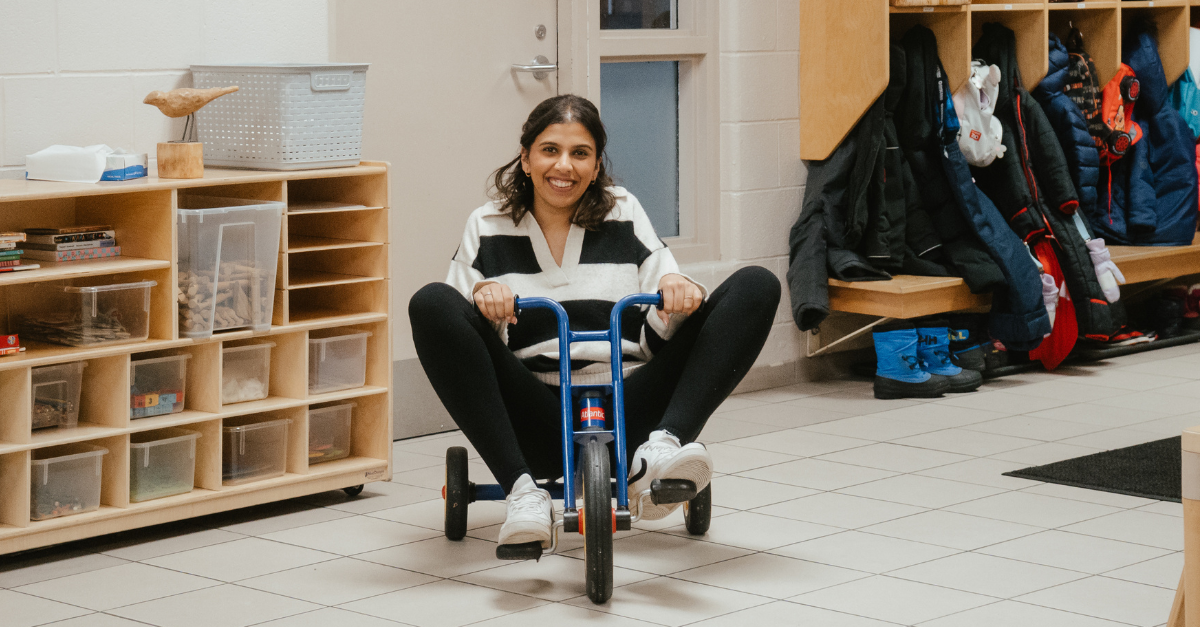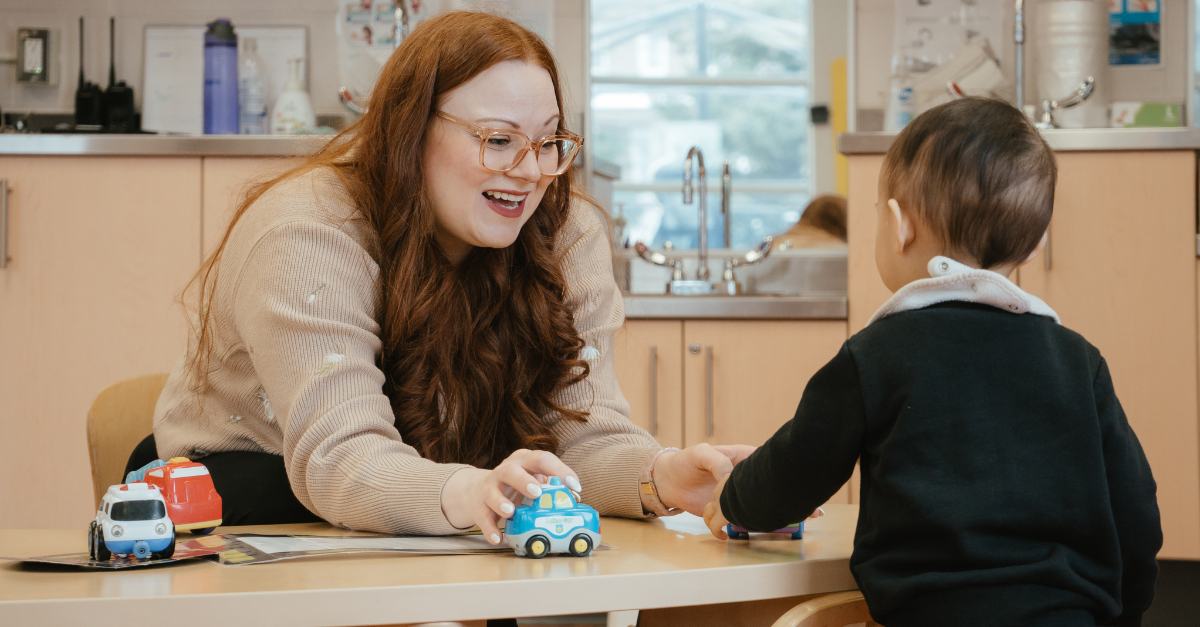How to build your child care career as a newcomer

When you listen to YMCA educators share their journeys, you hear more than job titles. You hear laughter, challenges, and stories of starting fresh. You hear about mentors who believed in them, families who placed their trust in them, and children who reminded them why this work matters.
Our In Conversation With Educators video series captures the voices of these educators. Here's their advice if you’re thinking about building a child care career as a newcomer in the Greater Toronto Area (GTA).
Retraining takes courage and opens doors
If you arrive in Canada with teaching experience, you may find your qualifications don’t always transfer. That was Petra’s experience. After teaching kindergarten in Austria, she discovered that she needed an Ontario diploma and Registered Early Childhood Educator (RECE) registration to work with children in Canada. What’s more, English isn’t her first language — she grew up speaking German.
She chose to retrain, finished her Early Childhood Education diploma in Ontario, and became an RECE. Today, Petra is an on-site supervisor in Halton Region. She says the YMCA’s Playing to Learn™ curriculum felt like home to her because it’s similar to the curriculum she practised in Austria.
“[Playing to Learn™] is really based on the child, and we learn through playing,” Petra says.
 Sometimes Petra wondered if she was making a difference. A colleague reminded her of the day she jumped on a preschool tricycle, knees up to her chest, racing the children around the playground while they shouted, “I can get you, Petra!” That spark of joy was the proof of Petra’s meaningful impact. Children remember when you join their world.
Sometimes Petra wondered if she was making a difference. A colleague reminded her of the day she jumped on a preschool tricycle, knees up to her chest, racing the children around the playground while they shouted, “I can get you, Petra!” That spark of joy was the proof of Petra’s meaningful impact. Children remember when you join their world.
If you also need to retrain and the path feels long, remember Petra’s story. Like her, you will get there!

A career change later in life is possible
Maybe you, like Janice, didn’t start your career in child care. Once a graphic designer, she is now a RECE in Durham Region. Janice was raising her children when she decided to switch professions and study early childhood education.

She says she was nervous about starting something new later in life, but once she began, she couldn’t stop smiling. She found joy working with children every day and soon fell in love with EarlyON programs, which allowed her to connect with both children and parents.
Janice felt immediately welcomed at home at the YMCA. “There’s a spot for everyone,” she says.
Janice’s story is proof that you can start fresh, even later in life, and still shine in a new career.
Look for supports that help you balance school, work, and life
The cost of retraining can feel heavy. Many newcomers worry about how to pay for school while also working and caring for their families.
Alyssa, a RECE in Toronto, isn’t a newcomer, but her story highlights how support programs can help. She started at the YMCA as an assistant and wanted to earn her diploma. With support from the Y through mentorship, sponsorship, and access to bursaries, she was able to study and continue to work. “I got a lot of support from my supervisor, who introduced me to the apprenticeship program,” says Alyssa. The encouragement kept her moving forward.

Alyssa also got married and started her own family while she was studying and working. When her child was born, YMCA benefits, including maternity top-up, gave her peace of mind. The YMCA feels like home to Alyssa, a place where she can shine both personally and professionally.

If you’re worried about balancing life and school, Alyssa’s story shows you that support exists to help you succeed. As a newcomer entering the child care educator workforce in Canada, you can find help through the ECE Bridge to Work Program, and other Y services.
Mentorship can help you find your spark
When you are new, it’s normal to feel unsure. Shianne, now an on-site supervisor in Peel Region, remembers starting as a supply educator and not feeling confident. (Pro tip: If you want to get started now, begin as a supply.)
 Shianne says she would not be where she is today without supervisors who believed in her and kept reminding her that she had potential. With their support, she grew into a leader. Today, she mentors others and wants to “be the spark” for someone else.
Shianne says she would not be where she is today without supervisors who believed in her and kept reminding her that she had potential. With their support, she grew into a leader. Today, she mentors others and wants to “be the spark” for someone else.
Vanessa, also in Peel Region, began as a supply educator. In just four months, she became an on-site supervisor. She says her leaders kept telling her to apply. Their encouragement helped her take a step she didn’t think she was ready for.
Your uniqueness is your strength
As a newcomer, you bring more than training. You bring languages, cultures, and traditions that make classrooms richer. Petra explains that “everybody carries something unique in them.” Children notice when you share songs from your country or celebrate traditions with pride.

Parents notice, too. Families often feel more comfortable when they see educators who understand what it means to adapt and build a new life. That trust builds strong partnerships between you, the YMCA, and the families you support.
Your story is part of what makes you a strong educator. Don’t hide it — let it shine.
Final advice: Take one step at a time
Retraining takes courage, and it can open doors. A career change later in life is possible. Programs exist to help you balance school, work, and family. Mentorship can help you find your spark. Your uniqueness is your strength. And the impact you make lasts longer than you think.
Your journey won’t always be easy, but it will be worth it. At the YMCA, you’ll be surrounded by a team that celebrates your wins, supports you, and encourages you to shine on through every stage of your career.
Want to hear these educators tell their stories in their own words? Watch our In Conversation With Educators video series and see why the YMCA of Greater Toronto is more than a workplace. It’s a community that helps you grow, belong, and be the spark in a child’s life.










